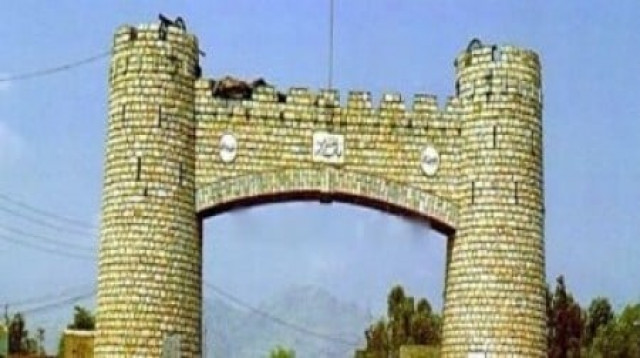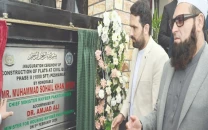Widening tax net : K-P generates 66% more tax revenue in FY20
Major levy contribution was witnessed from telecom sector

Established in 2013, the Khyber Pakhtunkhwa Revenue Authority (KPRA) has been making persistent annual collections under Rs11 billion, however in FY19-20, the tax body made a significant collection of Rs17.158 billion, despite the COVID-19 pandemic.
The 66% hike is said to have come with a simple policy approach, ‘tax acculturation’, under which businesses and people were inclined to pay taxes.
According to the KPRA’s annual report, high tax rates do not guarantee higher revenue collection, as the raise can be witnessed even through tax rates pitched on the lower side.
The yearly report said the authority collected Rs10.354 billion in 2018-19, but the tax collection exceeded Rs17 billion during 2019-20, with Rs194 million being gathered on account of Infrastructure Development Cess (IDC).
At the time of the budget 2019-20, the KP sales tax target was initially fixed at Rs18 billion. It was later reviewed and pitched between two extremes —minimum Rs16 billion and maximum Rs20 billion.
For the KPRA, the major revenue contribution was recorded from the telecom services. Around 40% of the total tax collection was witnessed from the sector, marking a whopping increase of 169% that resulted from the fact that during 2018-19 no sales tax was paid by these services. The hiatus had come due to the suspension of taxes by the Supreme Court in a suo moto case.
The KPR expressed hope that despite the pandemic sinking economies worldwide, the indoctrination of the social distancing phenomenon will ramp up the consumption of telecom services, along with tax collection.
According to the annual report, collections from oil and gas sector services grew historically at a rate of 105%. It was learnt that a chunk of revenue came from the seismic surveys in Kohat and Tal areas, reporting a mega discovery of natural reserves.
It stated that the future plans suggested shifting tax management of oil and gas sector to the KPRA headquarters from Mardan, as national and regional offices of companies are mostly located in Islamabad.
Apart from telecos, oil and gas sectors, the hospitality sector grew 20% and is expected to bring more revenue to the government exchequer in the future. Unfortunately, two adverse factors have allegedly sabotaged KPRA’s efforts to enhance flow of tax from this industry.
“The FBR unilaterally levied and started collecting federal sales tax form food supply services, restaurants (and similar other outlets) and caterers, despite the fact that these services are internationally treated and taxed as services,” the report read.
The report clearly mentioned that restaurants and food catering businesses were pressurised through notices by the Inland Revenue and approached by low-level officials warning them of serious consequences under the income tax regime.
The pandemic hit the hospitality sector hard even before the government’s announcement of regular lockdowns and closure of tourist spots, the report pointed out.
“COVID-19 closed revenue gates of hospitality market as sales tax was collected when consumption took place,” it read, adding that KPRA’s efforts for tax coverage, including geo-mapping and invoice monitoring system for restaurants, faced hurdles during most of the second half of the year.
These revenue losses remained uncompensated even after the end of the financial year 2019-20, the report said, continuing that ever since the provincialisation of sales tax on services, several problems related to equity issues and ease of doing business cropped up.
The KPRA tried resolving jurisdictional disputes, overlapping of tax demands, duplication of tax incidences, cascading, credit denials, multiplicity of declarations, divergent tax treatments and differentiations of processes. It also tried to mitigate the issue of contradictory application of reverse charge mechanisms.
The report identified that international donors especially the International Monetary Fund (IMF) and the World Bank drew adverse inference from such a scenario. Moreover, donors claimed that tax to GDP ratio in case of service sector side of the national economy never improved under the collection of sales tax on services through provinces.
“The provinces questioned such observations by identifying terminological and classification misnomers in the national accounting system of GDP, donors are not convinced insisting on national level GST harmonisation without any compromise on constitutional privileges and entitlements of federating units,” the report read.
The KPRA is said to have stressed upon setting things right for the sales tax system, as chambers of commerce, industrial and trade associations were persistently demanding removal of difficulties arising out of fragmentation of sales tax system.
For registrable businesses, the KPRA did physical surveys from time to time and third party data was used to gather information about non-compliant entities.
During 2019-20, the coronvirus pandemic unleashed multiple setbacks for KPRA’s revenue maximisation measures, the report said, adding that closure of markets, lock-ups and social distancing measures adversely impacted consumption and tax flows.
While the telecom services were kept at a conventional higher rate of 19.5% and standard rate of 15% was kept unchanged in the budget 2019-20, the range of reduced rates was increased to four brackets — 10%, 8%, 5% and 2%. These measures were intended to promote confidence of the taxpayer community, boosting sales tax compliance level in the provinces as well.
Tax reductions
A sales tax at a reduced rate of 5% was introduced on all digital economy, where services related to installation, commissioning and similar services (other than for domestic purposes) were brought under standard tax net.
The tax rate on mid-range restaurants (other than corporate, chain-based, franchised or owned by multinationals) was reduced from 15% to 8% and further reduced to 2% for restaurants operating purely in an informal style. Tax on wedding halls was reduced from 15% to 8%, on catering services down to 10%, while full exemption was granted to traditional type launderers and dry-cleaners. The rate on medium-sized or stand-alone laundries and dry-cleaning businesses was reduced to 8%.
The tax rate on advertisements on electronic media was reduced to 10% and down to 5% on print media, while the rate for property dealers, second hand automobile dealers, and rent-a-car businesses was reduced from 15% to 5%.
Published in The Express Tribune, December 21st, 2020.



















COMMENTS
Comments are moderated and generally will be posted if they are on-topic and not abusive.
For more information, please see our Comments FAQ